The RIPE NCC team was at the 19th Internet Governance Forum held in Riyadh, Saudi Arabia. Here are some of our key takeaways from the last Internet event of 2024!
With 307 sessions packed into five busy days, it’s fair to say that it’s a bit of a challenge to stay on top of all the different discussions taking place at the IGF. The theme this year was “Building Our Multistakeholder Digital Future”, with the programme shaped around four main topics:
- Harnessing innovation and balancing risks in the digital space
- Enhancing the digital contribution to peace, development, and sustainability
- Advancing human rights and inclusion in the digital age
- Improving digital governance for the Internet We Want
Over the years, sessions at the IGF have expanded from Internet governance to talking about digital economies, the digital divide, cybercrime, and essentially all things digital that use the Internet as their underlying infrastructure. AI and digital governance made their appearance on the agenda, with several sessions dedicated towards discussing the risks, ethical questions and opportunities that come with the use of AI. As the UN Secretary General António Guterres put it in his opening address “Digital technology must serve humanity — not the other way around.”
Our focus however, was more on the technology that underpins and enables these new developments - the Internet itself. We wrote about the tendency to conflate the word “Internet” with everything digital in a RIPE Labs article back in November, and this is quite evident at an event like the IGF. This is also why we participated in an Internet 101 session along with ICANN and ISOC on Day Zero to explain how the core technical infrastructure operates.
We participated in the following sessions:
- Day 0 #58 on the multistakeholder model for IPv6 deployment
- Day 0 #112 on the Internet technical community
- Main session on the evolving role of NRIs in multistakeholder digital governance
- WS #194 The Internet governance landscape in the Arab world
- WS #157 Driving Multistakeholder Engagement: Lessons from Lebanon and Canada
- WS # 223 NOGs - Driving the local Internet
For those interested, the outputs and summaries of the IGF 2024 are available on their website (which, rather like the IGF itself, is a bit of a maze to navigate).
Internet governance in the Arab region
The Riyadh IGF marks the second time that the Forum has taken place in an Arabic-speaking country since the IGF held in Sharm El Sheikh, Egypt in 2009. Several sessions were dedicated to the development of Internet governance in the Arab countries.
The session on the Arabic Internet governance landscape provided an overview of the different initiatives in the region, as well as the roadmap for the year ahead. Discussions were held on how the region could work together, particularly in the lead up to the WSIS+20 review and Global Digital Compact discussions in 2025.
The growing network of national and regional initiatives (NRIs) across the Arab region, including initiatives like the Lebanon IGF, Arab IGF, North Africa IGF, Tunisia IGF and others, reflects the region’s commitment to fostering inclusive and collaborative governance. At the Riyadh IGF, we saw the official announcement of the Saudi IGF as a new NRI initiative, further strengthening this ecosystem and advancing shared regional priorities.
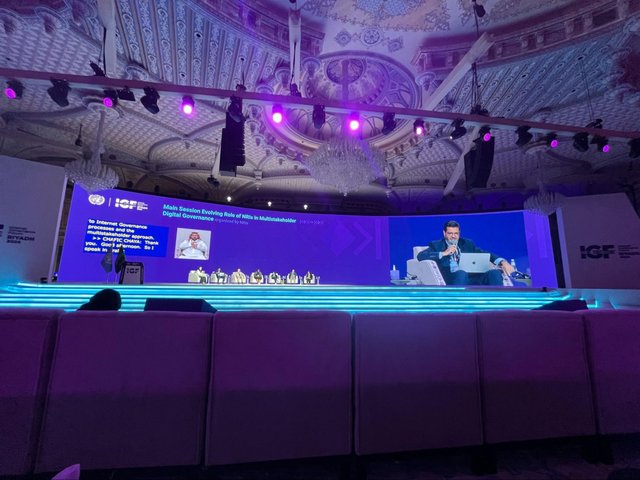
In his talk at the event, our colleague Chafic Chaya stressed that NRIs don’t work in isolation. Complementary initiatives led by the technical community such as the RIPE NCC, ICANN, and ISOC enrich these efforts with technical expertise.
The RIPE NCC plays an important role in this context. Platforms such as MENOG (Middle East Network Operators Group) and MEAC-SIG (Middle East and Adjoining Countries School on Internet Governance), as well as government roundtables and tailored programmes for countries, bring stakeholders together for dialogue, capacity building and knowledge sharing. This helps to make sure that technical and operational perspectives on the Internet are fully integrated into broader Internet governance discussions, strengthening the entire Internet ecosystem.
IPv6 Deployment
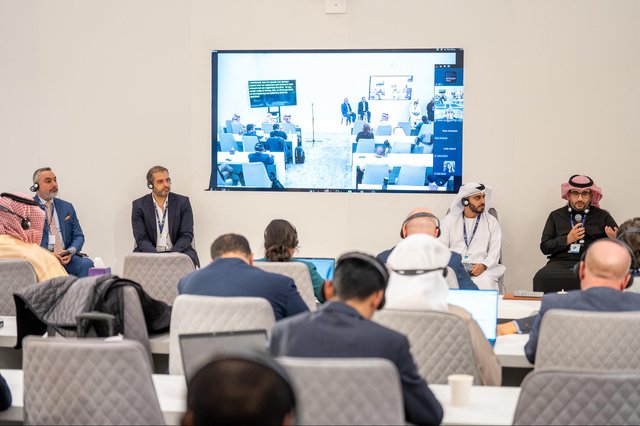
We co-organised a session with the Communications, Space and Technology Commission in the Kingdom of Saudi Arabia which looked at how the multistakeholder approach has led to significant increases in IPv6 deployment over the past three years.
Saudi Arabia is now fourth in the world with nearly 65% deployment, and the UAE is at over 50%. The panel had an interesting discussion on how the shift from a top-down regulatory approach to an inclusive multistakeholder model with voluntary implementation has led to significant results. In addition to showcasing the work done, this session will hopefully lead other governments and regulators to think about how they are approaching IPv6 deployment in the context of their competitiveness and future scalability.
Continuity of the Internet in the face of crises, conflicts and fragmentation
A main session was held on the continuity of the Internet in the face of conflicts and crises ranging from undersea cable cuts to connectivity in conflict areas such as Palestine and Ukraine. Mohamed Shareef from the island nation of the Maldives spoke about the impact of climate change on the resilience of their Internet infrastructure, and Nadim Nasif from Palestine shared challenges in maintaining connectivity in Gaza.
The Dutch Cyber Ambassador, Ernst Noorman, emphasised the importance of preventing Internet fragmentation and maintaining the neutrality of those technical organisations that manage core operations of the global Internet. He also highlighted the efforts made at the UN level to establish international norms for responsible state behaviour in cyberspace and the protection of critical infrastructure, which were endorsed by the UN General Assembly in 2015. These norms state that a country "should not conduct or knowingly support ICT activities that violate its obligations under international law, which intentionally damage critical infrastructure or otherwise impair the operation of essential services to the public." Furthermore, Noorman stressed the importance of preserving the neutrality of organisations like the RIPE NCC in order to keep the Internet as a single, open, and interoperable network.
Ultimately, participants recognised the importance of safeguarding the Internet as a shared global resource. Despite the current development of a normative framework, ensuring the protection of communications and network infrastructure continues to pose challenges at multiple levels, as evidenced by the recent cable cuts in the Baltic Sea.
NOGs - Driving the local Internet
The APNIC Foundation had organised a session bringing together different Network Operator Group (NOG) organisers participating in the IGF. Interestingly this was the first time that NOG organisers met as a group at an IGF.
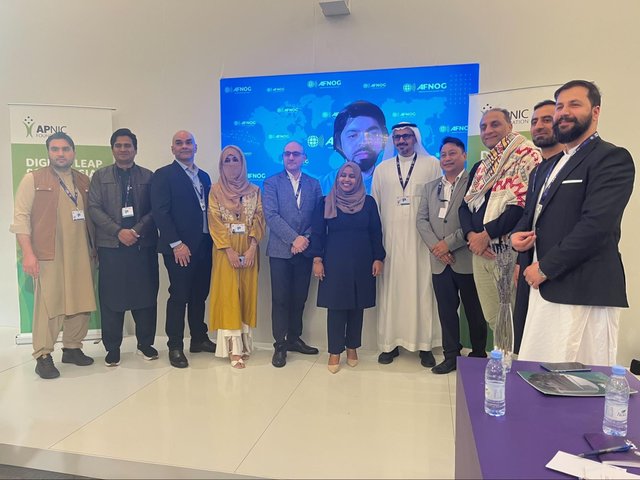
Representatives from the very newly created AfNOG (Afghanistan Network Operators Group), Maldives NOG (MLNOG) and Timor Leste NOG spoke about their challenges and successes in getting their respective NOGs off the ground.
Representatives from the more-established South Asia NOG (SANOG) and Middle East NOG (MENOG) also shared how they are evolving to support more local NOGs. For instance, SANOG is moving towards developing a train-the-trainer programme rather than offering workshops directly as part of the NOG meeting. We spoke about the development of NOGs in Central Asia and also lauded the efforts of MENOG, which holds its 25th meeting this year.
The WSIS+20 review, the Global Digital Compact and the future of the IGF
The 19th Internet Governance Forum (IGF) took place at a particularly important juncture, ahead of the twenty-year review process of the World Summit on Information Society (WSIS+20) scheduled for 2025. This review will determine the future of the IGF, including whether its mandate will be extended beyond the next IGF in Norway in just six months from now, making the event in Lillestrøm possibly the last in its current format. Given this context, many sessions were rather introspective - discussing the impact of the IGF or its future.
Some sessions discussed the role of National and Regional Internet Governance Initiatives (NRIs) and their contributions to the IGF as a whole. When the IGF was created in 2005 following the Tunis Agenda, the world was a lot less digitalised, with roughly 1 billion Internet users. Today, nearly 5 billion people are online and there are over 150 NRIs discussing Internet governance in their respective regions.
Beyond the recent adoption of the UN Global Digital Compact (GDC) and its recognition of the IGF as "the primary multi-stakeholder platform for discussing Internet governance issues", we can expect intense discussions about the IGF’s renewal and financing model during the upcoming WSIS+20 review process.
These discussions are crucial for maintaining the multistakeholder approach to Internet governance that has developed over the past two decades. Despite some imperfections, this open, inclusive, and collaborative governance model has played a significant role in shaping the Internet as a powerful tool for innovation, social inclusion and economic development. It’s important to ensure that this model remains effective in the years to come.

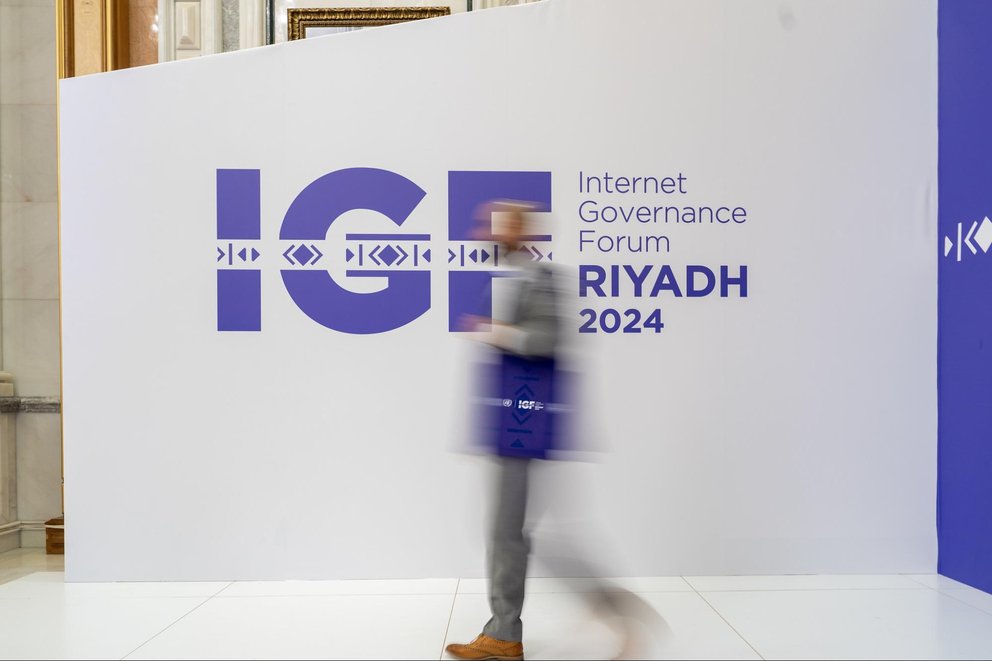
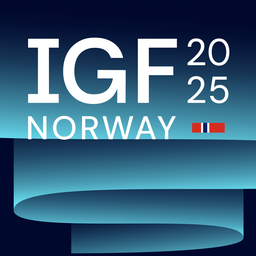
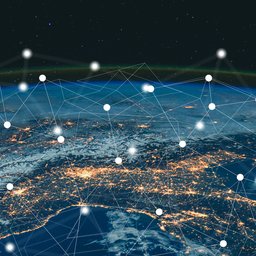

Comments 2
The comments section is closed for articles published more than a year ago. If you'd like to inform us of any issues, please contact us.
Chris Buckridge •
Very much appreciated your comments, Ulka, in the workshop on regionalism and the IGF (a subject that the RIRs obviously have very significant insight into!). Check out the report on the session here: https://dig.watch/event/internet-governance-forum-2024/ws-141-regionalism-and-the-igf
Ulka Athale •
Thanks for sharing the link to the session report, and the invitation to join the session. The discussion on coordinating non-geographically contiguous groups based on shared goals and frameworks might be interesting for the RIRs to think about as well.